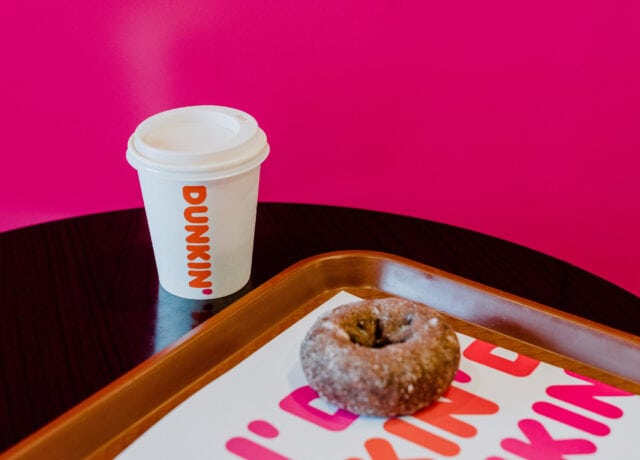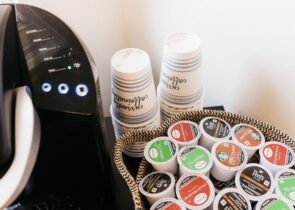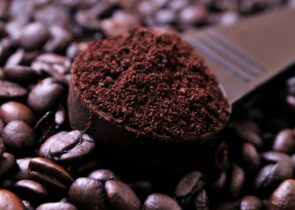Alas, all good things come to an end. Or at least has an expiration date.
If you’ve been storing up some of your favorite coffee beans and grounds in your pantry at home, you might be wondering how long they can stay that way. You may also be asking: “How long does coffee last? Can coffee go bad? Is it safe to consume once it’s gone past its shelf life? How do I keep my coffee from going bad?”
If you aren’t a frequent coffee drinker, these questions are totally valid and understandable. Thankfully, we’ve got all of the answers right here. Read on to find out more.
Does Coffee Expire?
All coffee, regardless of whether its whole bean or grounded up, will expire eventually. Though it can be mildly heartbreaking for the coffee junkies out there, the spoiling of coffee is almost unavoidable. There are several reasons why coffee goes bad, and there are also several factors that may even cause it to spoil even faster than the expiration date. These factors include the form the coffee is in, how it’s roasted, and how it’s stored.
For starters, scientifically speaking, coffee doesn’t last forever because coffee is composed of various degradable compounds that begin to break apart over time. These compounds include forms of carbohydrates, lipids, and amino acids. Over time, these compounds and molecules will break down chemically and physically, altering the quality and overall flavor of the coffee.
Usually, roasters will have an expiration date labeled on their bags, and it’s normally about a year after the date that the coffee was roasted on. After roasting, the coffee is packaged in sealed bags with nitrogen in order to further preserve freshness. However, once you decide to open the bag, the coffee will slowly begin to break down due to its exposure to oxygen, moisture, and the outside atmosphere.
Here at Roasty, we always believe that fresh is best. If you’re a fan of whole bean coffee and have your own burr grinder at home, we recommend grinding as close to brewing as possible. If you currently have coffee sitting somewhere at home, and it looks or smells a bit strange or “flat”, this means that both the freshness and the flavor of the coffee are mostly gone and its time to toss it out. And if you’re coffee looks a little moldy or mildewy, DEFINITELY throw it out.
Preservation Methods
So, how can you keep your coffee from going bad? One crucial way to preserve the shelf life of your coffee is by ensuring that it’s stored properly. If stored properly, coffee can actually last for quite a while after the expiration date on the bag, especially if it hasn’t been opened.
In order to best protect the flavor, keep your coffee in an airtight container that’s in a cool, dark, moisture-free area, the “moisture-free” part being the most crucial part of that list. Moisture is the absolute WORST enemy to your coffee. If exposed to moisture for an extended amount of time, not only will it alter the flavor, but it will also encourage the growth of mold and mildew.
However, the best preservation method you can utilize is consuming your coffee as soon as possible. Nothing is better than a fresh cup of joe, so we suggest drinking coffee relatively soon after purchasing. The longer you store it, the higher the risk of it soiling faster.
Freezing Coffee
Amongst every corner of the internet, you can find those who say that you can place coffee in the freezer to preserve it. Though it does keep it slightly fresh, we need to warn you that using this method will suck almost all of the flavor out of your beans or grounds. This is because, even in your freezer, there is moisture that can seep into your coffee.
You’ll be left with a dull, boring cup of coffee that has almost no vibrancy or signature notes of flavor, and coffee without its robust, savory flavor might as well not be coffee at all. So though it may somewhat get the job done, we highly advise against this method.
Beans vs Grounds: Breaking It Down
How fast coffee spoils depends on the form that the coffee is stored in. So whether you enjoy grinding whole bean coffee yourself at home with a burr grinder, or skipping that step and brewing with already ground coffee, knowing the shelf life of your coffee will help you keep your coffee fresh. However, if stored properly, coffee can actually last longer than its expiration date.
Whole Bean Coffee
When whole beans are sealed, they can last for about 6-9 months in your pantry. Since they’re still in solid form, it’s easier for them to hold onto the molecular compounds that hold the coffee’s flavor. In contrast to this, if the bag of whole beans has been opened, they should be expected to last on the shelf for about 6 months.
Coffee Grounds
If you have coffee grounds, their shelf life won’t last as long as their whole bean counterparts. Since they are more physically broken down than whole beans, they are more vulnerable to the elements and have a higher risk of soiling faster. The oils in the coffee begin to evaporate at a quicker rate, On average, an unsealed bag of ground coffee should last about 3-5 months past the expiration date. When opened, it should be expected to last 3-5 months in the pantry.
Instant Coffee
Now, instant coffee is a form of ground coffee that can be considered almost virtually indestructible. It’s not as flavorful or caffeinated as regular coffee since it’s coffee that’s been extremely broken down, but it can last for up to 2-20 years depending on how well you store it.
Since instant coffee is more concerned about ease and convenience rather than high-quality flavor, you can store this in the freezer and it’ll still taste relatively the same. This is great news for those who are fans of instant coffee, especially runners, campers, or hikers who often use it as a pick-me-up when they’re on the go.
What About Brewed Coffee?
So let’s say you’ve brewed a batch of coffee. Once it’s been brewed, coffee is usually only good for about 4-6 hours. It’s still safe to drink, but the flavor won’t be as satisfying as when it was freshly made. Because water helps release the solubles in coffee, your cup of coffee can oxidize much faster in liquid form than in solid form. So to play it safe, your absolute maximum limit to brewed coffee should be no longer than 8 hours, and that’s only if you’re desperate for a caffeine fix.
Another thing that we don’t recommend is the re-heating of already cooled coffee. Once the coffee has been brewed, most of the flavor has already been extracted. Re-heating coffee can further extract or break down the flavor and oils in the coffee, causing it to have an altered taste. One trick to prevent you from re-heating coffee is investing in a thermos or an Ember Cup to make sure your coffee stays warm for up to a couple of hours after brewing.
One tip to save leftover brewed coffee is by freezing it for future use. My pouring leftover coffee into a couple of ice trays in your freezer and you can sue them in the future for smoothies, ice cream, or even to keep iced coffee cold.
Frequently Asked Questions (FAQ)
Still confused? Have no fear! If you have some remaining questions, we’ve got the answers. Here are a few of the popular questions that you may have and the answers to them.
How can I tell if my coffee is bad?
Coffee doesn’t really change in physical appearance once it’s gone bad, so how can you tell if your coffee is good or not? Since it’s not really visible to the eye, your nose is your greatest tool. Fresh coffee smells strong and pleasant, and stale or spoiled coffee does not. It usually smells dull, dusty, and generally lacks that wave of sweet, caramel-like fragrance.
If you’re already brewed coffee, you can still notice a change in flavor more time passes. After about an hour or so, you’ll notice the coffee go from its normal flavor to a more bitter, slightly sour flavor.
What happens if I drink expired coffee?
The great news is, you won’t explode or get struck by lightning or anything like that. Unless it has mold or mildew on it, your coffee should still be okay to drink. The only sacrifice you’ll have to make here is that some of the flavor of your beans or ground coffee may not keep. This applies to both whole beans, as well as ground coffee.
Does roast matter?
Coffee can be roasted in a variety of ways with many different flavors and aromas. But does the roast of the coffee determine how quickly it can go bad? Though the expiration is about the same no matter what the roasts are, some connections have been made between roasts and expiration dates.
Often, the connection is that lighter roasts may last longer than darker roasts. This is primarily because the darker roasts have more oils and amino acids extracted from within the beans that then sit on the surface of the beans, causing it to spoil at a faster rate over a longer period of time.
Do K-Cups expire?
It’s important to note that k-cups aren’t like regular coffee grounds since they are individually packaged for Keurig machines. Since they’re packaged well and in small amounts, they last a while longer than regular ground coffee. If you have k-cups that have already been opened slightly, and you decide to store them in your pantry, they will go bad much faster (remember, oxidation is not kind to coffee). So we suggest you either brew your opened k-cups immediately or toss them out.
What containers can I store coffee in?
If keeping coffee bags in your pantry has been taking up too much space, there are other options for you to utilize. We recommend using storage methods like vacuum-sealed bags or coffee vaults. A vacuum-sealed bag is a literal airtight container that will help you store coffee with minimal risk of oxygen and moisture slipping in.
On the other hand, coffee vaults are normally made out of stainless steel and are specially designed just for storing coffee beans and ground coffee. Most have built-on lids attached to them to make sure that they are as sealed as possible.
What can I do with leftover coffee?
So, what should you do with your leftover coffee? Whether its beans or ground coffee, there are several options out there to make sure that it doesn’t completely go to waste. Instead of making a cup of coffee, you can use it to do a variety of things like coffee body scrubs, fertilizer for your garden, compost, hair/scalp scrub, and even as a meat tenderizer.
Wrapping Up
It’s never fun when your favorite ground coffee or whole coffee beans go bad. But the great news is that you can make sure that it lasts as long as possible through using correct storage methods. We here at Roasty think everyone deserves a delicious cup of fresh joe, so we hope you’ll take your new-found coffee knowledge and get to brewing and storing your coffee so you can enjoy more savory coffee in the future.
Happy caffeinating!










